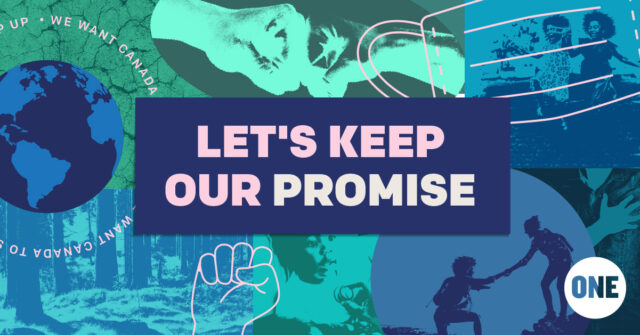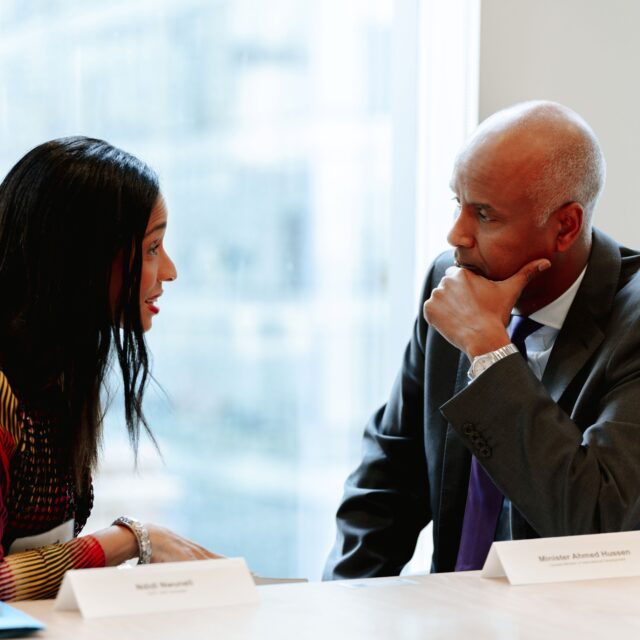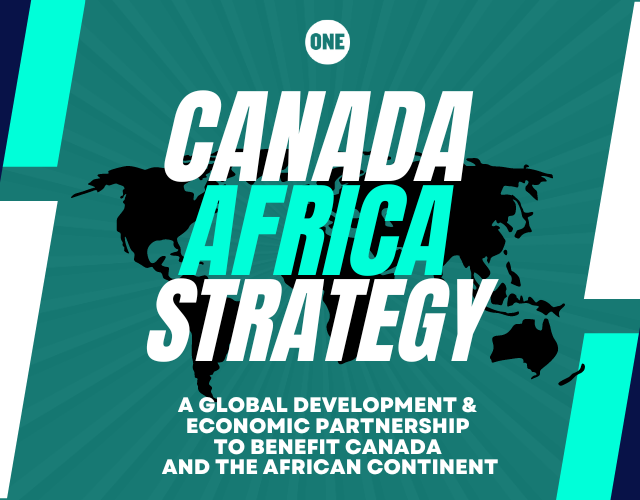After months of countless advocacy including a successful parliamentary reception, high-level parliamentary meetings and over 5000 of you taking action, the Government of Canada didn’t deliver the outcome we had hoped for on Budget Day.
Canada dealt a major blow to development and global health with a 15% cut to international aid in Budget 2023. Without new spending announced, aid as a share of our national income could go down to 0.25%-0.27%, compared to 0.32% in 2021. This would be the lowest share since Prime Minister Trudeau took office. The Government had promised in the Speech from the Throne and in mandate letters to increase international assistance every year towards 2030 and with Tuesday’s budget that promise was clearly broken
With a confluence of crises – climate, increasing conflict, and rapidly rising rates of hunger and malnutrition reaching the worst they’ve been in decades – we should be stepping up our leadership, not stepping back.
So what exactly did we see in the budget?
- The total International Assistance Envelope (IAE) is projected to be $6.88 billion for 2023-24, compared to $8.15 billion for 2022-23, or a 15% reduction. Last year’s budget included spending that could be considered exceptional, such as for the ACT-Accelerator and COVAX facility that were global responses to the Covid-19 pandemic. But sadly since then the world has seen several new crises that are exceptional, like the war in Ukraine, an unprecedented food crisis in the Horn of Africa, and natural catastrophe fueled by climate change, like cyclone Freddy that has recently hit Mozambique and Malawi.
- No renewed commitment for Canada’s expiring education commitments previously made as part of the Charlevoix Education Initiative, or to the Women’s Voice and Leadership flagship program of the government’s Feminist International Aid Policy (FIAP)
- No new commitments on food security or on global health
- Increased funding for defense in Ukraine totaling approximately $284 million in military and humanitarian spending.
Two positive outcomes:
- The Government of Canada tabled long-awaited legislation for a corporate beneficial ownership registry. This is a massive blow against money laundering, corruption, tax evasion, and terrorist financing, and was enthusiastically applauded by a coalition of civil society organizations that have campaigned on this issue for years.
- The inclusion of updates and renewal to the General Preferential Tariff and the Least Developed Country Tariff until 2034 will build on a progressive trade agenda and incentivize countries to adhere to international standards on human rights, labour conditions, gender equality, and climate change while promoting economic growth
This Budget was a big let down, and will undermine our standing and credibility on the global stage. We can’t actively seek leadership positions like running for the United Nations Security Council when we aren’t showing up in the world with our investments for health and development.
Contrast Canada’s approach this week with that of President Biden’s proposed budget, which actually suggests increasing international assistance by 10% this year, including $10.9 billion for global health and health security, a $370 million increase. One of the driving factors for the US’s increased investment is countering China’s growing political and economic influence, which has been part of its strategy in leveraging development funding across Africa and the Asia-Pacific.
It’s time for real reflection as to whether or not Canada can show up as a global leader in health and development – as we have for so long – and whether or not we will meet the moment.


